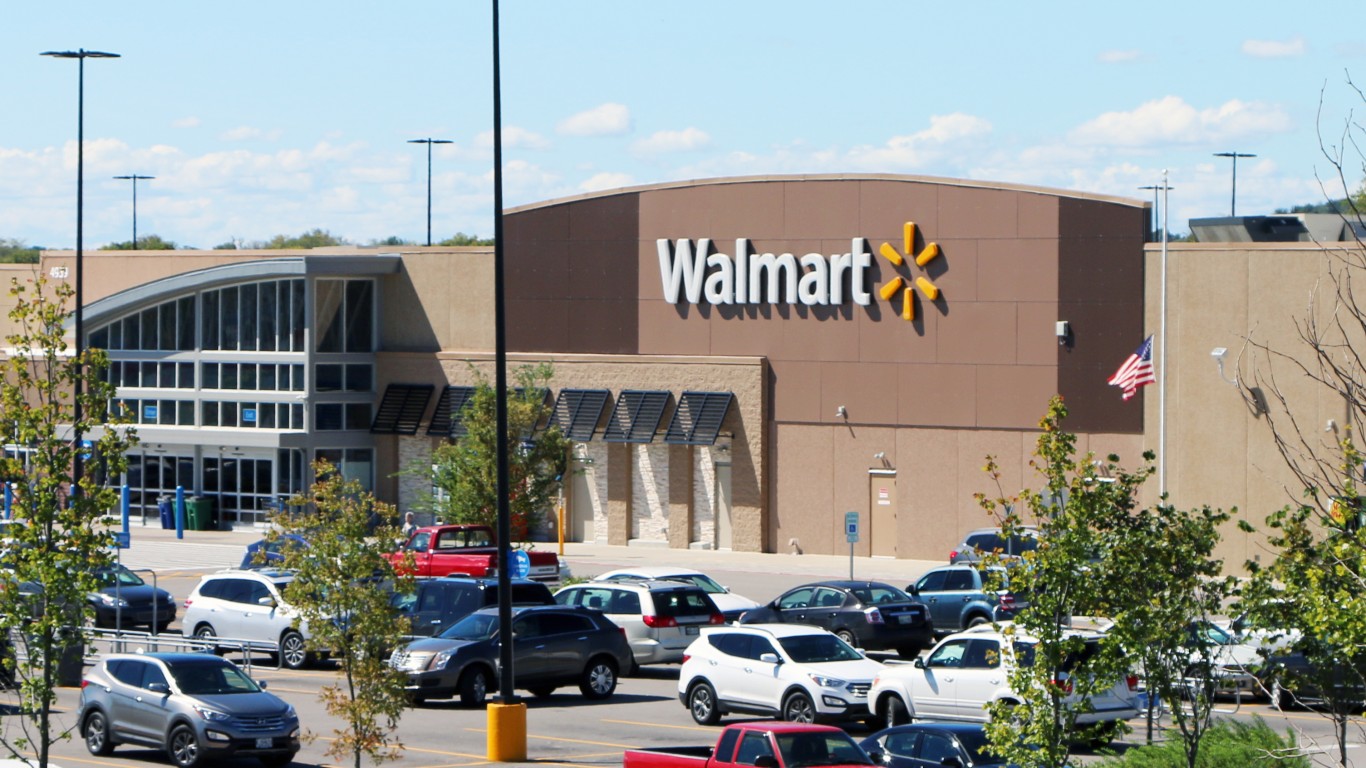
After U.S. markets closed on Monday, Canoo reported no revenue, as expected, and a narrower-than-expected adjusted loss per share of $0.14. The company also launched its Lifestyle Delivery Van (LDV) 190, expanding its electric cargo van offerings into a heavier class. Canoo said it is “making progress on achieving a production readiness level of 20,000 vehicles per year by the end of 2023.” Shares were down 6.5% in mid-morning trading on Tuesday.
Before markets opened on Tuesday, Home Depot reported better-than-expected earnings per share (EPS) and revenue. While revenue beat the consensus estimate by 1.7%, it fell 2% short of revenue in the year-ago fiscal quarter. The Dow Jones industrial average component reaffirmed fiscal year 2024 guidance and authorized a new $15 billion share buyback program. The stock traded up 1.2%.
Sea Limited missed both top-line and bottom-line estimates. The Singapore-based company cited lukewarm consumer spending and a weak macroeconomic environment as responsible for a sharp drop in its mobile gaming business. Shares traded down 28% Tuesday.
Tencent Music also missed consensus estimates on the top and bottom lines. EPS missed by a penny, and revenue missed by $2 million (less than 0.1%) but beat the year-ago total by 5.5%. Shares traded up 4.2%.
After U.S. markets close on Tuesday and before they open on Wednesday, JD.com, Nu Holdings, Target, TJX and Zim Shipping are scheduled to report quarterly results. Look for Cisco Systems, SQM and StoneCo to share their results later on Wednesday.
Here is a look at what to expect from two firms reporting earnings first thing Thursday morning.
Tapestry
Luxury goods maker and retailer Tapestry Inc. (NYSE: TPR) posted its 52-week high in early February, down about 15% from the stock’s closing price last Wednesday.
On Thursday, Tapestry said it will acquire another luxury goods maker, Capri Holdings, for $8.5 billion in cash, and the shares plunged another 16%. But over the past 12 months, Tapestry’s stock is down just 0.4%. Could it be that investors overreacted a bit to last week’s news? Interestingly, only one brokerage has downgraded Tapestry’s stock since the announcement; six have downgraded Capri stock.
Of 20 analysts covering Tapestry stock, 15 have a Buy or Strong Buy rating, while the rest have Hold ratings. At a recent share price of around $35.50, the stock’s implied gain based on a median price target of $50.00 is 40.8%. At the high price target of $60.00, the upside potential is around 69%.
Analysts are forecasting fiscal fourth-quarter revenue of $1.65 billion, which would be up 9.6% sequentially and by 1.9% year over year. Adjusted EPS of $0.97 would be up 23.9% sequentially and by 24.4% year over year. For the full 2023 year that ended in June, analysts are looking for EPS of $3.90, up 12.3%, on sales to $6.7 billion, up 0.2%.
Tapestry stock trades at 9.1 times expected 2023 EPS, 8.4 times estimated 2024 earnings of $4.23 and 7.4 times estimated 2025 earnings of $4.81 per share. Its 52-week trading range is $27.53 to $47.48, and Tapestry pays an annual dividend of $1.40 (yield of 3.94%). Total shareholder return for the past year was 2.73%. Capri does not pay a dividend, and total return to shareholders over the past 12 months was 1.28%.
Walmart
Another Dow Jones industrial average component reporting this week is Walmart Inc. (NYSE: WMT). Over the past 12 months, the company has seen its share price increase by more than 21%. The stock posted a new 52-week high on Monday, and Tuesday morning’s stronger-than-expected report on July retail sales could be more good news for the stock. The report increases the chances that the Federal Reserve will raise interest rates again next month, and that is likely to keep shoppers returning to Walmart for everything from groceries to toys and school supplies.
Analysts remain bullish on the stock, with 34 of 42 having a Buy or Strong Buy rating and seven more rating it at Hold. At a share price of around $160.00, the upside potential at the median price target of $173.50 is 8.1%. At the high target of $210.00, the implied upside is 26.5%.
For its second quarter of fiscal 2024, Walmart is expected to report sales of $159.01 billion, up 4.4% sequentially and 5.0% higher year over year. Adjusted EPS are pegged at $1.71, up 16% sequentially but down 3.4% year over year. For the full 2024 fiscal year ending in January, analysts anticipate EPS of $6.27, down 0.4%, on sales of $635.87 billion, up 5%.
Walmart stock trades at 25.5 times expected 2024 EPS, 23.0 times estimated 2025 earnings of $6.95 and 20.6 times estimated 2026 earnings of $7.77 per share. The 52-week trading range is $128.07 to $162.78. Walmart pays an annual dividend of $2.28 (yield of 1.42%). Total shareholder return for the past year was 22.58%.
100 Million Americans Are Missing This Crucial Retirement Tool
The thought of burdening your family with a financial disaster is most Americans’ nightmare. However, recent studies show that over 100 million Americans still don’t have proper life insurance in the event they pass away.
Life insurance can bring peace of mind – ensuring your loved ones are safeguarded against unforeseen expenses and debts. With premiums often lower than expected and a variety of plans tailored to different life stages and health conditions, securing a policy is more accessible than ever.
A quick, no-obligation quote can provide valuable insight into what’s available and what might best suit your family’s needs. Life insurance is a simple step you can take today to help secure peace of mind for your loved ones tomorrow.
Click here to learn how to get a quote in just a few minutes.
Thank you for reading! Have some feedback for us?
Contact the 24/7 Wall St. editorial team.

 24/7 Wall St.
24/7 Wall St. 24/7 Wall St.
24/7 Wall St.



